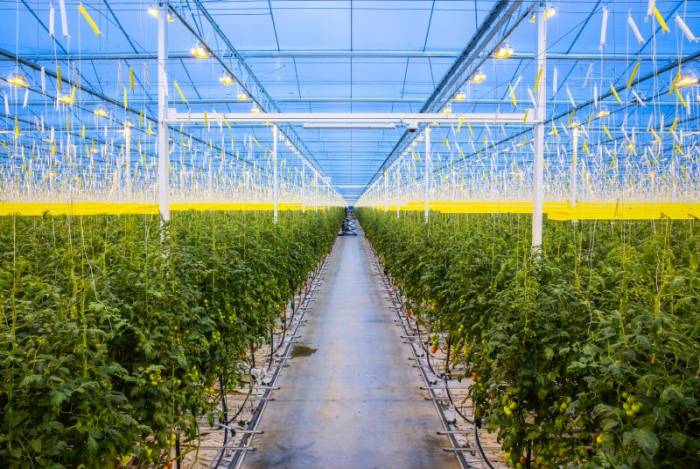
Advanced greenhouses designed to be environmentally-friendly are to be built on two farms as part of a new £120m project.
The greenhouses will be two of the UK's largest and will be built on farmland near Norwich and Bury St Edmunds.
In a world first, they will be warmed by residual heat from nearby water recycling centres owned by Anglian Water.
Greencoat Capital, the UK’s largest investor in renewable energy, has announced the project.
It says decarbonisation of the farming industry has so far been 'disappointingly slow' despite their enormous carbon output.
But the new greenhouses set to change this by reducing the carbon footprint of food by 75% compared to European equivalents.
Closed loop heat pumps will be used to transfer the heat from the water recycling centres to the greenhouses.
They will have the additional benefit of cooling the facility’s treated water outflow before it is returned to the environment.
Electricity for the greenhouse’s heat pumps will be provided by a Combined Heat and Power (“CHP”) plant, with waste heat from the CHP providing further warmth for the greenhouses.
The gas-fired CHP plant’s carbon emissions will be transferred into the greenhouses, raising the CO2 levels and further accelerating the growth of the plants, and capturing the majority of the carbon.
The construction phase of the project will begin immediately, with completion expected in autumn 2020.
Commercial-scale growers from the UK and the Netherlands have already committed to leasing the space.
The greenhouses will provide growing conditions for a range of plants and vegetables requiring a high-heat, and relatively low-light environments such as tomatoes, cucumbers and peppers.
Once operational, they will be capable of producing more than 1 in 10 of the country’s tomatoes and will create 360 permanent new jobs.
Standing around 7m tall the large glass structures allow crops to grow vertically along guidewires, and do not require any soil, instead being grown hydroponically from nutrient rich water solutions.
Once in full production, they will be capable of growing more than 20 tonnes of tomatoes every day – 12% of the tomatoes grown in the UK.
